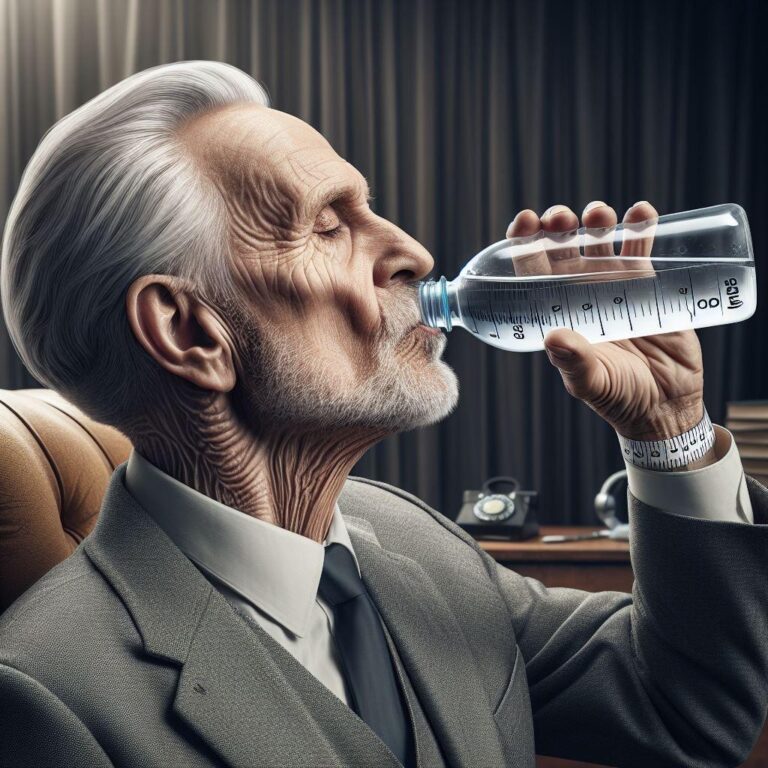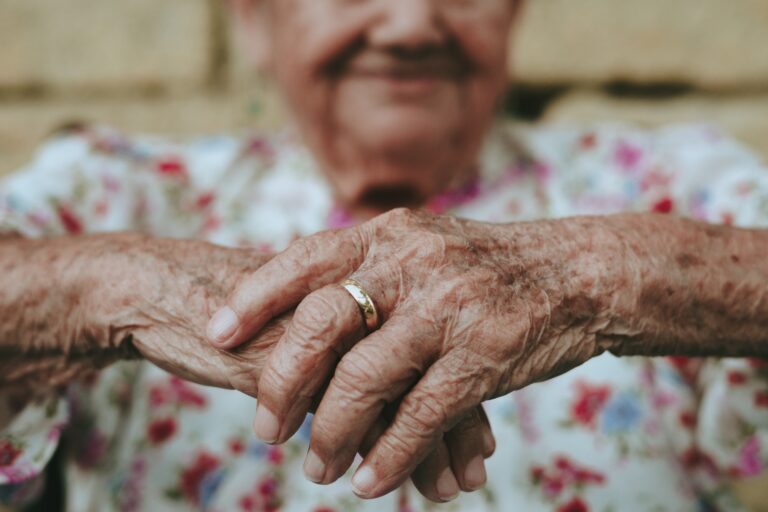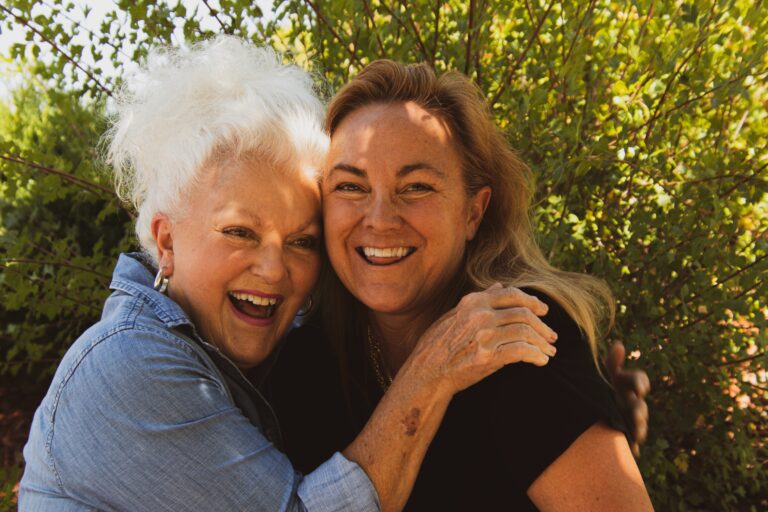The Importance of Hydration for Seniors
The human body uses water in many valuable functions, which include temperature regulation, lubrication of joints, and the process of transport for nutrients and waste. Hydration in seniors is of great importance, as they are more prone to dehydration. Changes in the human body with age have even been linked to reduced thirst and, in some cases, deterioration in the functioning of the kidneys. Proper hydration supports cognitive function, physical health, and overall quality of life in older adults.
The Risks Associated with Dehydration in Older Adults
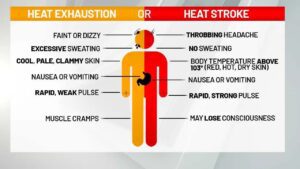 Dehydration is much more than a simple thirst for seniors. In fact, dehydration represents a grave health problem that can bring about drastic issues. They range from minor health risks like urinary tract infections (UTIs) and constipation to major problems, including kidney stones and even kidney failure due to dehydration. Dehydration may also make pre-existing chronic diseases, for example, heart issues and diabetes, worse. Besides, dehydration among the elderly predisposes them to increased rates of hospitalization and complications, as well as prolonged illness and recovery periods from surgery or other illnesses.
Dehydration is much more than a simple thirst for seniors. In fact, dehydration represents a grave health problem that can bring about drastic issues. They range from minor health risks like urinary tract infections (UTIs) and constipation to major problems, including kidney stones and even kidney failure due to dehydration. Dehydration may also make pre-existing chronic diseases, for example, heart issues and diabetes, worse. Besides, dehydration among the elderly predisposes them to increased rates of hospitalization and complications, as well as prolonged illness and recovery periods from surgery or other illnesses.
Main Issues Around Dehydration in Seniors
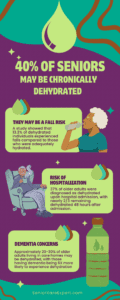 Seniors are at risk of dehydration since there are natural physiological changes with aging, such as a lower percentage of total body water and lesser capacity for water conservation. Into this susceptibility, add some drugs whose side effects are to increase the number of times one passes urine or to cause sweating and some medical conditions that make one find it hard to take in fluids (e.g., dysphagia). The diminished sense of thirst means that many seniors do not feel the urge to drink until they are already dehydrated.
Seniors are at risk of dehydration since there are natural physiological changes with aging, such as a lower percentage of total body water and lesser capacity for water conservation. Into this susceptibility, add some drugs whose side effects are to increase the number of times one passes urine or to cause sweating and some medical conditions that make one find it hard to take in fluids (e.g., dysphagia). The diminished sense of thirst means that many seniors do not feel the urge to drink until they are already dehydrated.
Early Symptoms
Identifying early symptoms of dehydration is crucial in preventing it turning into more severe health issues. These symptoms can be subtle and include dry mouth, fatigue, dizziness, cramping, headaches, and dark-colored urine. Unfortunately, these signs are often mistaken for or attributed to other age-related conditions, delaying the diagnosis and management of dehydration.
Importance of Fluid Intake
Adequate fluid intake is vital for seniors, as dehydration can precipitate acute health crises like kidney failure and seizures. It can also contribute to chronic health problems, worsening the prognosis for conditions such as renal insufficiency, congestive heart failure, and diabetes. Beyond the physical implications, dehydration negatively impacts cognitive function, leading to confusion, impaired judgment, and increased vulnerability to delirium, particularly in seniors with pre-existing cognitive impairments.
Understanding Dehydration in Seniors
One of the main health issues very common to seniors is dehydration, which is multifaceted in its causes and implications. This, therefore, makes it rather important to understand the root causes and symptoms as a determinant of controlling or preventing dehydration among old people.
Causes of Dehydration in Seniors
- Reduced sensation of thirst: Reduced sensation of thirst in most senior people reduces the urge to take water regularly. In such a process, the feeling of taking water regularly is absent, and hence seniors are likely not to take water, thereby dehydration sets in.
- Diuretic Medications: A large proportion of the aged take, daily, diuretic medications for either high blood pressure or heart disease. The use of this medicine triggers excretions and may even facilitate urination, leading to fluid loss and, if not checked by increased fluid consumption, may lead to dehydration.
- Physical Challenges and Disabilities: Physical challenges and disabilities mostly pose danger to senior citizens on an individual basis of accessing fluids. A senior may fail to access a drink when he feels like drinking due to some physical limitation. Problems holding or opening containers due to conditions such as arthritis.
- Cognitive Problems: Dementia/Alzheimer’s disease: Poor cognitive functions may heavily interfere with a senior’s capability to recognize that they really require fluids or remember drinking them. People with dementia tend to forget to drink or are not even aware that it is time to do so, and therefore suffer from dehydration as a result of these accidents.
- Unintended Consequences: Many seniors know that drinking more liquids means they’ll need to use the bathroom more often. This can be a concern for those who suffer from incontinence, as it might mean changing pads frequently. For those who aren’t incontinent but still struggle with mobility, getting up from a chair or bed to go to the bathroom can be painful due to aches in the hips, knees, or other parts of the body. The fear of leaking before reaching the restroom, needing to change clothes and pads, or the discomfort of getting dressed again may discourage them from drinking enough. This can lead to dehydration, even if they feel extremely thirsty, like having a mouthful of cotton balls. They might avoid drinking to prevent these issues, thinking “what goes in must come out.”
Symptoms and Risks of Dehydration in Seniors
Recognizing Signs of Dehydration
- Dry Mouth: A feeling of stickiness or dryness in the mouth is a common early sign.
- Fatigue: Unexplained tiredness or lethargy can be a symptom of dehydration.
- Dizziness: The rapid rising of elderly persons from sitting or lying down may lead to dizziness or the feeling of lightheadedness due to the low blood volume resulting from dehydration.
- Confusion: Sudden changes in mental status, including confusion or disorientation, may signify severe dehydration, especially in the elderly who have some pre-existing cognitive issues.
Long-term Health Risks:
- Urinary Tract Infections (UTIs): This results in the precipitation of bacteria overgrowth in the urinary tract that could possibly be due to concentrated urine.
- Kidney stones, on the other side, come up from little fluid intake; that means the minerals in food and drink are bound to crystallize with the concentrated urine, forming the stones.
- Decreased cognitive functions: In the case of chronic dehydration, brain health is really affected, and it could bring about an exacerbation of long-term functions of cognition while worsening conditions such as dementia or the risk of stroke.
The complex interplay between causes and symptoms underscores the need for a proactive approach to senior hydration. That said, knowledge of such causes for early signs of dehydration may help caregivers and health workers develop strategies to avert the risk and promote better health outcomes of older adults.
The Role of Caregivers in Managing Hydration
Caregivers play a crucial role in ensuring seniors remain adequately hydrated, a task that requires vigilance, understanding, and proactive management. Here’s how caregivers can effectively oversee hydration:
Monitoring Fluid Intake
Strategies for Tracking Daily Fluid Intake:
- Use Measured Containers: Encourage seniors to drink from containers with measured marks to easily track the amount of liquid consumed throughout the day.
- Keep a Hydration Diary: Maintain a daily log of fluid intake, including all beverages and food with high water content (e.g., fruits, soups). This can help in ensuring the senior meets their daily fluid requirements.
- Set Regular Drinking Reminders: Establish a routine for fluid intake. Use alarms or smartphone apps to remind both the caregiver and the senior to take fluids at regular intervals.
- Visual Aids: Place visual cues around the living environment to remind seniors to drink regularly. Brightly colored sticky notes or signs can serve as effective reminders.
Understanding the Individual Hydration Needs of Seniors:
- Consult Healthcare Providers: Each senior’s hydration needs can vary based on their health status, medications, and activity level. It’s essential to consult with healthcare professionals to determine a personalized hydration goal.
- Adjust for Environmental Factors: Be mindful of the impact of hot weather or heated indoor environments on fluid requirements. Increase fluid intake during these times to compensate for increased losses through sweat.
Identifying Sign of Dehydration
During medical appointments, ask healthcare professionals to demonstrate how to check for signs of dehydration, such as checking for dry mouth, elasticity of the skin, or changes in urine color.
When to Seek Medical Help:
- Persistent Symptoms: If signs of dehydration, such as confusion, dizziness, or rapid heart rate, persist despite attempts to rehydrate, seek immediate medical attention.
- Worsening Condition: Should the senior’s general condition deteriorate, or if they are unable to keep fluids down due to vomiting, it’s crucial to contact a healthcare provider.
- Emergency Situations: In cases of severe dehydration where the senior exhibits extreme lethargy, unconsciousness, or seizures, call emergency services immediately. Severe dehydration is a medical emergency that requires prompt intervention.
Caregivers’ active involvement in monitoring fluid intake and identifying dehydration early plays a vital role in preventing the adverse health outcomes associated with dehydration in seniors. By employing effective strategies and knowing when to seek help, caregivers can ensure the seniors in their care maintain optimal hydration and health.
How to Keep Your Senior Properly Hydrated
Ensuring that seniors maintain adequate hydration levels involves creative strategies and an understanding of their unique needs and preferences. Here are ways to encourage regular fluid intake and create a hydration-friendly environment.
Encouraging Regular Fluid Intake
Tips for Incorporating Fluids Throughout the Day:
- Establish a routine by setting regular intervals for drinking fluids, such as upon waking, with medications, before and after meals, and before bedtime.
- Use small, manageable goals, such as drinking a glass of water after each bathroom break.
- Enhance the appeal of drinking water by adding natural flavors like cucumber slices, berries, or lemon wedges.
- Go Beyond Water: Incorporating Hydrating Foods and Other Beverages:
- Include foods high in water content in meals and snacks, such as watermelon, strawberries, cucumbers, and tomatoes.
- Offer a variety of beverages throughout the day, including herbal teas, diluted fruit juices, and milk, to provide hydration and nutritional benefits.
- Brew iced herbal teas as attractive alternatives to plain water.
- Prepare hydrating snacks like smoothies, yogurt, or gelatin desserts that are not only nutritious but also help increase fluid intake.
- Avoid Dehydrating Drinks: Educate seniors and caregivers about the diuretic effects of caffeine, alcohol, and sugary beverages.
The Importance of Offering Fluids Even When Not Thirsty:
- Educate seniors and their caregivers about the decreased sensation of thirst with aging and the importance of drinking fluids regularly, regardless of thirst.
- Make drinking an enjoyable and social activity by sharing a cup of tea or a glass of water together.
Creating a Hydration-Friendly Environment
- Ensuring Easy Access to Beverages:
- Place pitchers of water and cups within easy reach of the senior’s favorite sitting areas.
- Encourage seniors to carry a personal water bottle when moving around the house or while out for activities.
Personalizing Drinkware and Settings to Encourage Drinking:
- Use cups, glasses, or water bottles that are easy for seniors to hold, considering factors like grip strength and dexterity.
- Personalize drinkware with favorite colors, patterns, or themes to make the drinking experience more enjoyable and engaging.
By incorporating these strategies, caregivers can effectively address the hydration needs of seniors, ensuring they remain hydrated and healthy. Each senior’s preferences and needs are unique, so tailoring these strategies to fit the individual can lead to better outcomes and more enjoyable hydration practices.
Overcoming Common Barriers to Hydration
Dealing with Lack of Thirst
As we age, the body’s natural thirst signals tend to weaken. This change means that seniors may not recognize when they need to hydrate, leading to inadequate fluid intake. Factors contributing to this diminished sense of thirst include physiological changes in the aging body, certain medications, and decreased kidney function.
Techniques to Stimulate Thirst or the Desire to Drink:
- Flavor Enhancement: Adding natural flavors to water, such as lemon, lime, or cucumber, can make it more appealing and stimulate the desire to drink.Sometimes even using different bottled or filtered water can help, since the minerals can affect the taste of the water.
- Scheduled Drinking: Establishing a routine for drinking water at specific times of the day, regardless of thirst, can ensure regular fluid intake.
- Small, Frequent Sips: Encouraging seniors to take small, frequent sips of water or other beverages throughout the day can help maintain hydration without overwhelming them with large volumes of fluid at once.
Physical and Cognitive Challenges
- Use of Specialized Drinkware: Adaptive cups and bottles designed for easier use can help those with physical limitations. Options include cups with built-in straws, lightweight materials, and handles that accommodate weakened grip.
- Thickened Liquids: For seniors with dysphagia (difficulty swallowing), thickened beverages can make swallowing safer and more comfortable, reducing the risk of aspiration. One option is Jelly Drops, an innovative sugar-free treat, made of 95% water with added electrolytes & vitamins, designed to increase fluid intake.
Use of Technology and Reminders:
- Smartphone Apps and Timers: Utilizing smartphone apps designed for hydration reminders or setting timers throughout the day can prompt regular fluid intake.
- Automated Home Systems: For those with cognitive challenges, integrating hydration reminders into smart home devices like Amazon Echo or Google Home can provide auditory cues to drink water.
- Visual Aids: Placing colorful, visually stimulating reminders around the living environment can prompt seniors to drink more frequently.
Dealing With Continued Struggles with Hydration
Recognizing and acting upon the early signs of dehydration can prevent more severe complications. Offering a variety of hydrating options, including favored beverages and hydrating foods, can quickly counteract mild dehydration.
Caregivers should be aware of any medications the senior is taking that may contribute to dehydration, such as diuretics. Consulting with healthcare providers to adjust the medication regimen or supplementing with additional fluids can mitigate these effects.
Persistent challenges with hydration, despite the above interventions, warrant a consultation with a healthcare provider. A medical review may identify underlying conditions affecting hydration or suggest specialized interventions to improve fluid intake.
Overcoming the barriers to hydration in seniors involves a multifaceted approach that addresses both the physical and cognitive aspects of aging. By employing creative strategies, leveraging technology, and maintaining open communication with healthcare providers, caregivers can ensure that seniors stay adequately hydrated, supporting their overall health and well-being.
Implementing a Hydration Plan
Creating and implementing a hydration plan for seniors involves thoughtful preparation and ongoing adjustment to meet their individual needs. Here’s how to approach it effectively:
Setting Realistic Goals
The first step in developing a successful hydration plan is to consult with healthcare professionals to establish how much fluid a senior should be consuming daily. These targets can vary significantly based on a variety of factors, including the senior’s weight, level of physical activity, existing health conditions, and current medications. Establishing realistic, personalized hydration goals ensures that the plan is both effective and achievable.
Regular Review and Adjustment
A senior’s hydration needs may change over time due to shifts in health status, activity levels, or climate. Regular monitoring of fluid intake, as well as observing for signs of dehydration, is crucial. Caregivers should schedule periodic assessments of the hydration plan to ensure it continues to meet the senior’s needs effectively.
Flexibility is key in managing a senior’s hydration plan. Adjustments may be needed for a variety of reasons, such as a new health diagnosis, a change in medication that affects fluid balance, or even the senior’s changing taste preferences. Caregivers should be prepared to modify the hydration strategy as needed to keep it aligned with the senior’s current situation and to maintain or improve its effectiveness.
Hydration is a fundamental aspect of senior health care that demands attention and action. Caregivers play a pivotal role in ensuring that seniors remain adequately hydrated by implementing personalized hydration plans, monitoring fluid intake, and adjusting strategies as necessary.
Recap of the Key Points:
- The importance of hydration for seniors cannot be overstated, with adequate fluid intake being critical to maintaining health, preventing dehydration-related complications, and enhancing quality of life. Caregivers must be proactive in identifying barriers to hydration and employing creative solutions to overcome them.
- Caregivers are encouraged to actively implement effective hydration strategies tailored to the individual needs of the seniors in their care. This involves setting realistic hydration goals, regularly reviewing and adjusting the hydration plan, and staying vigilant for signs of dehydration.
- The landscape of senior care is ever-evolving, as are the needs of each individual senior. Caregivers should seek ongoing education on hydration best practices and remain flexible, ready to adapt their approaches as the seniors’ needs change. By doing so, caregivers can ensure that the seniors they support are not only well-hydrated but also healthier and happier.
Implementing a thoughtful and adaptable hydration plan is a critical step in caring for seniors. Through collaboration with healthcare professionals, diligent monitoring, and an openness to learning and adapting, caregivers can make a significant impact on the well-being of the seniors in their care.

From a young age, Stacey’s link to the senior care industry grew alongside her mother’s work at a nursing home, where she often accompanied her. By her early teens, she secured her first official job at a nursing home, laying the foundation for a profound journey in senior care spanning over four decades. Her roles varied from opening assisted living and memory care residences to working in nursing homes and independent senior living communities. As the former Director of Fun for 300 independent seniors, she expertly organized daily events and trips. Stacey’s unwavering passion, nurtured by her family, and professional dedication as a recreation therapist, reflect her deep commitment to preserving the dignity and well-being of seniors.
Stacey’s senior care expertise has been recognized by the media including U.S. News and World Report and Care.com.
Stacey and her husband Bryan are the owners of the senior in-home care agency A Place At Home – North Austin.

